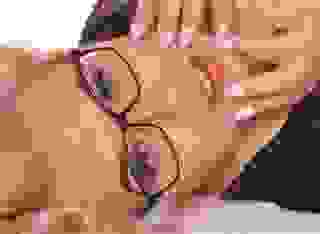Note: You can change font size, font face, and turn on dark mode by clicking the "A" icon tab in the Story Info Box.
You can temporarily switch back to a Classic Literotica® experience during our ongoing public Beta testing. Please consider leaving feedback on issues you experience or suggest improvements.
Click hereI sleep late, but the incident is brought to my attention, so I go to the lock up. Old Billy I have known for many years. He was in an archery section with me that sailed to Naples, after the Norman garrison there were in dispute with a neighbouring Italian warlord in the region. It all came to naught and we were only there for six months, kicking our heels.
"Billy, you know why I have sealed the town."
"Aye, Will, er, Sir William, but my family ... You've seen before what happens with these marching sicknesses in crowded old towns. It starts in one place, first a few go down with it, then the whole row catch it, before it spreads to the next row and the next."
Riverside is the oldest part of the town, sprouting from the root of the rock that the Castle is perched whereon, next to the river, which flows around the ancient obstruction. An old community grew up along the river, for fishing and the ferry, with a mill and cloth fulling industries, a boatyard, shops and a market grew up. People spread from the narrow streets there, the prosperous moving to the somewhat lower twin hill to the Castle mount, and the town was formed. Riverside is the oldest, most tightly crowded part of our town.
"I know that is what happens, but already we have people recovering. This pestilence will burn itself out and pass, we just have to give it time. If you carry it already, we will know in a couple of days, and so would the next town you had gone to, if we had let you get away."
"I know Will, but my son's wife is pregnant with my first grandson. I just had to get away."
"I have already had your son and daughter in law sent home, we still need bread, Billy. But I am keeping you in here for now, at least a couple of days. Robert, my sergeant, is collecting all the boats and storing them in Bart's boatyard downstream, so that no one else can try the same thing."
Well, I have organised the town and pressed younger men as soldiers to mount the guards in case more townsfolk want to flee the plague, which is affecting all with headaches, running noses, coughing, running stools and severe weakness of the joints.
I dare not let this pestilence out into the countryside. We must ride it out here alone. If I fail to hold it here, behind a line scratched in the land, the whole country may be lost.
I am called to the south gate, where men are being turned away from the market.
I had not realised it was market day, I had lost sense of time, being away from the routine. There are carts of cheeses and milk, root vegetables, eggs and small herds of sheep and geese. Needs that the town must have. I send for Paul, who looks after trading standards in the market.
Word comes back in the form of his son, Paulie Junior, as Paul Senior is caught up in the sickness.
We have contained the animals with picket fences, the produce from the unloaded carts piled on trestle tables. Paulie confirms what are good and what is rejected. By shouting across from the tables to the carts and their suppliers 50 yards away, prices are discussed and haggled over, Paulie insisting on wholesale prices at a discount. Bargains are made and coin from the Castle coffers counted out, wrapped in linen bags and dipped in boiling water. The goods are brought inside, loaded up and taken down Main Street where Cross Street meets and three of the Boroughs of Bartown meet.
The trestle tables are scrubbed down and the money set out for the traders to collect. It all goes according to plan and with remarkable ease.
Three full drays from Oaklea arrive, fully laden with fresh ale, supplied by Alwen.
"Supplied gratis, for the benefit of the town during this difficult time," yells the leading drayman Alfred.
He and his mates unload at the gate. I send the draymen back with a verbal plea to summon Father Andrew, for his counsel, describing the illness from the symptoms observed, which I have them recite over and over for accurate conveyance to the priest. And I verbally convey the town's and my gratitude to Lady Alwen.
I dare not to send her a letter, though my heart aches me so to do, but who can assure me that this devils' ailment will not pass as easily on parchment as it appears to by handshake?
9.
River road
(Robin Oaklea, son of Will Archer, narrates)
At the inn at Coraton, I watch the Lady Elinor. She seems to know well her way around such a bustling environment, leastways for one who asserts she has never travelled away from her manor before.
I can see her clearly from where Henry is giving us instructions and information about how to get to Brugge, and impart some idea of what the teeming Flemish port is like, or, leastways, what it was like the last time he went through there, on the way to or from some war.
I swear I listened to every word Henry said, but I confess that half of my attention was taken up by watching her. Somehow, she must have borrowed a hair brush from somewhere, as her unruly reddish brown hair was finally under control and shone like Welsh gold in the rush lights of the inn. She was now dressed in humble garb, exchanging her flimsy silk wedding gown for sturdier everyday wear of woollen fabrication over linen under garments.
She is laughing with the maids, sharing a joke at my expense no doubt, I think miserably. But one of the maids reveals her former silken gown for her friends to see and feel, and I kenned the true source of the merriment; Lady Elinor had exchanged the gown for the servant's everyday clothes and, hopefully a woollen cloak, for I owned up that I would like my coat back in time for the sea crossing. Perhaps the maid holding on possessively to the gown was to marry soon, as the gown would serve as well as any newer cloth for such occasion?
I have paid the innkeeper for one room to sleep on her own for the Lady, while Henry, Hugh and me are roughing it in the loft above the barn.
After sharing our supper with the once more aloof Lady, we man and boys retire to the inn's public hall, while the Lady retires for a bath and an early night abed.
We enquire of the regular bar users our prospects of securing a further mount, one fit for a Lady, by early upon the morrow. The conversation among the locals and traders, each seeing opportunities to be negotiated in their favour, is lively, frank, and with much spitting on palms in hopes of sealing bargains. Howevr, the night was really only successfully concluded, once we had spoken to a particular individual, who was heartily recommended by all those present, or at least all that were worth listening to.
There had been little argument about where our tiny band of travellers go from here. Our conversation, which was conducted before Elinor had changed her clothes and descended to the hall for supper, was succinct and to the point. Hugh simply refused to leave us and go back the way he came, carrying a message for my father. He insisted that he has no sense of direction and has no idea of the way home, and is sure that he will be robbed and murdered and his tiny pony stolen, without the protective and intimidating Henry at his side.
I, on the other was never going to abandon my obligation owed to the Lady in her need for assistance and for the duration of her hours of need, to any other. So Henry, reluctantly agrees that he has to be the one to go back and inform my father whence we have gone, to save him the futility and heartache of chasing after us in the neighbouring counties.
I wave God Speed to Henry, as he leaves after an early breakfast, before most others have stirred, following the long evening and short night sleep. Other than the bare few pennies he needs for the two days' journey home, he presses the rest of the money from his belt, entrusted to him by my father, into my hand before he departs, heading west, while we look on to the sunrise for our bearing.
We have all slept well, considering the late hour we finally retired, so the remaining three of us were prepared to leave the inn immediately after an early break of our fast. Even Hugh, who freely admits to always being poor company in the morning, is eager for this new adventure to begin.
Lady Elinor arrives early in the dining hall for our breakfast, without our need to send summons upon her. She appears much more comfortable today in her change of garments, and is indeed kitted out with an old but still serviceable and warm looking woollen cloak for the sea journey.
But still she has to start the conversation by complaints about what manner of animal I have secured for her, as yet unseen by her.
She continues, "Why have we left this until this morning, before I can see if you have chosen a suitable mount and how comfortable the saddle is for riding, day after day? I should have seen the beast last night before supper, so we had time to make other arrangements should the one supplied prove unsuitable."
After such a scathing start, she smiled sweetly in thanks to the maid who passed her a platter of fresh warm bread and local cheese for her repast, then glowered back at me.
We two boys laugh, which is unfair of us, as, by the look on her face, she believes we are not only making light of a serious matter but making fun of her. Hugh starts the laughing off with a suppressed titter but he can hardly contain himself not to tell her all, and I cannot help laughing at his attempts to contain himself.
"I am sorry, Lady Elinor, we both have the giggles at the moment. I assure you that we are not laughing at you, only at the humour of the situation and our happy solution. Please understand, that this is the first time we have been on our own, having this adventure, and Hugh cannot contain his enthusiasm."
"So," she looks at me with fire in her eyes, "the oaf Henry has gone back to your father's manor?"
"The Castle, at Bartown."
"Well, I don't know this part of the country, but what do you expect him to do about my problem?"
"Nothing, he has enough on his plate at the moment. I don't want him to go on a wild goose chase across the countryside looking for us when we are in a completely different country."
"So, your father has other occupations too pressing to concern himself about his son? Will he not worry about you?"
"Yes, of course, he's my father."
"I don't hold much with fathers," she muttered, "though I suppose you are still boys, and fathers care about boys. What do you both do, when you are not roaming aimlessly about the countryside interfering with divers members of the higher nobility?"
"I suppose we may look like wastrels to one born to wealth and privilege, who does nothing but swan about the countryside and count their jewels in the banker's vaults!"
She sits with an open mouth at my retort.
"But as you asked, my friend Hugh here is lately apprenticed to a Farrier, while I am an apprenticed Longbow maker and Fletcher."
"Well, both honest trades—"
"And though Robin would never blow his own trumpet, he is also a maltster, a miller, an innkeeper, and such a good bowman that though he has only entered three archery competitions, he finished winning two and was beaten in the other only by his father."
"That, Master Hugh, I suppose," she agreeds, "is quite something," giving him, and only him, the benefit of her brilliant smile.
We collect our bows, quivers and bags and we walk down from the inn yard past the stables to the bank of the river.
"What is going on, Master Robin, we are passed the stables, have you arranged fresh rides from another livery?"
"Aye, my Lady, a different livery, and a smoother more sure-footed ride than you will ever have had."
We proceed along the path to a flat bottomed craft, a barge, upon the river.
"Ah," she smiles, "a smooth ride indeed!"
"The barge has a lateen sail rather like the model boats that Hugh and I made from carving wood and fitting a mast and tying on a kerchief for a sail."
Hugh grins in remembrance of those old days, "And Rob fell in once and nearly drowned. I had to dive in and pull him forth."
"You?" Elinor snorts, "you're half his size."
"Maybe, and he were even heavier with all that river water inside of him!"
"Can you stop talking about me as if I wasn't here?"
"No, it's much more fun talking about you than to you!" Hugh laughs, slapping his thigh.
Lady Elinor smiled too, this time I fancy a little with me rather than against me, but she is so hard to read that I cannot be sure.
"The river will cut the overland journey by two days, arriving at the sea port before the Count, and we will be rested and ready to sail. The innkeeper here knows my father, not only through being the Reeve but also when he was a travelling archer coming through these parts and others. The innkeeper has paid both river and sea passage for us on my promissory note in my father's name."
"Your father must be a powerful knight."
"He is a wise and honourable man. Indeed, that is the source of the power that he has, the strength of his word, much more than the welding of his sword or the accurate release of an iron bodkin on an ash, hazel or poplar shaft."
"He sounds too good to be true," she mutters so low I barely hear her.
We journey down the river relaxing in the spring sunshine, the river being in flood is running swift from the winter rains. The Lady mellows and is all smiles.
Before we cast off, the captain of the river barge emerges from this tiny midships office and exchanges banter with Hugh and me, after slapping us heartily on our backs, though wincing at the noise he makes. The man is short and stout, his hair almost all gone and his beard thick with white hair. He complains about how much ale he drank with us last night.
"Damn it all, my young friends, my head still hurts and the low bright sun we is sailing t'wards is makin' I squint. Where's that big fellow o' yorn, Hal?"
"He's gone back to give my father our new heading, so he may come along behind us in a couple of days."
"Well, I was drinking man ale with Hal, jug for jug, but thee young 'uns was only drinkin' half ale, I reckon if you wusn't so tall Robin, I'd call yer half-pint, an' yer boy here be farthin' wassell!"
"Hey!" Hugh whines at the unfairness that he had no taste for ale, even though it were flowing quite freely last night as various traders plied us for our favours in business.
"So, this here young woman must the Lady what Hal referred to? Are you goin' to get around to introducin' us, young fella?"
"Aye, this is Lady Elinor of Pitstone, also Countess De La Warre ... my Lady, this is our Captain, Leofwine."
She curtsies and smiles, holds out a hand, which the captain takes.
"Pleasure to have you on board, me Lady. I hopes ye'll have a pleasant ride down the river. My brother, Ecgberct will be at the port to take ye on your way, on the first tide out of harbour to Flanders."
The trip down the river is swift, completely effortless on our part and without incident. We relax in the spring sunshine and we smoothly pass riverside hamlets and towns, stopping here and there to pick up more cargo and drop other passengers off.
We hide and watch carefully as we make each stop, to ensure we do not encounter the Count and his men, but we see nothing. Small children on the banks must look forward to seeing the barge pass, as they gather and wave at us going by. Lady Elinor waves back to the children every time, as if she hasn't a care in the world, even though her future happiness could be ended if we are too late getting to the Red Hand bank of my father's friend, Rebecca.
At the port of Hymworthmere, we arrive safely about noon, where the long practiced sailors tie us up along side a great ship by the harbour wharves and help transfer we few scrambling passengers from barge to ship without even touching the shore.
While we meet our new skipper, who is shorter, wider, older, and his beard is even whiter, than his brother, the sailors use beams, ropes and pulleys to haul the barge's cargo aboard and stowed in the holds, with quick, smooth, but unhurried moves. The sea captain's eyes are bright with good humour as he greets his brother and happily accepts us aboard.
"We get ready to sail immediate like, while the tide is holding," says Ecgberct, "Ye can stow your gear in the fo'castle. We'll be just on our way in less than an hour."
"How long will it take to get across to Brugge, Captain Ecgberct?" she asks.
"We have to await the tide at the other end, so it will be two and a half days, if it be smooth, three and a half days if it ain't smooth. But most times it's as long as any coiled length of tarred rope you happen to have."
"Thank you Captain." Lady Elinor smiled graciously, "I will trust myself to you and the elements. Now, tell me, where do I sleep?"
"I'll show it to ye, it's not so grand for a Lady, but it's all we have to offer."
When she returns, she doesn't look as white faced as I expected.
I confess I am apprehensive at the thought of sailing. I have never seen the sea before and was too low to see earlier, but now I can hear the waves coming in and crashing against the shore and the wooden sides of the wharf.
The sailors soon have the sails aloft, clambering about on the mast. We move slowly at first, with the help of long poles to fend us off the wharf, but we are soon on our way out of port.
We hear shouts from the shore. We turn to look and there, large as life, we see the mounted Count wave his clenched fist from the harbour, freshly arrived in town on sweating horses.
"Will he be just an hour behind us, should he be able to charter a boat?" Lady Elinor nervously asks of the master.
"Nay, Master Rob, they'll be half a day behind us, as they've missed this tide and will have to await the next."
It takes us two days to sail to Brugge.
10.
Grain & gruel
(Will Archer narrates)
"Sire, the Priest from Oaklea be at the South Gate, he asks for thee," a guard reports.
Just the person I would pray to see, if ever I pray. Though I respect his faith, I have no faith of my own but do what good I can by my own hand, not for any notion of improving my after life.
I rise stiffly, to meet him at the gate. He too, wears over his mouth and nose his spotted red and white kerchief, the only colours to relieve his black garb. I notice he has dipped his kerchief in water, perhaps the better to filter his breath, I think; some of the cleaners I recall, dipped theirs in lavender water, a distillation sealed well before the plague was upon us and therefore safe from spreading the affliction.
Father Andrew is a blessing in more ways than one, he has brought not one but three carts from Oaklea, each ladened with barrels of ale brought from Oaklea brew house, no doubt from my thoughtful, blessed wife. I see also piled up several crates of leeks and onions.
"Fresh food," he explains, as soon as I come within his view, "the fresh sharpness from the onions and leeks will help with the breathing of the afflicted, I would have brought apples but our stores are empty this late in the spring."
"So, Father," I smile, so used to being in command and being the one who is expected to know all, I find that the weight is partly lifted from my shoulders, "you have heard of this set of strange symptoms afore?"
"Aye, Will, I believe you are suffering from the Eastern Ague, said to come from the fabled China itself!" he says, breathing heavy as he climbs down alone from the cart, waving away a guard who steps towards him, lest he infect the priest. "It is much like the normal ague but has the constituents of the dreaded flux too. I see you have covered your nose and mouth and those of your men. Wise precaution, the little Devils that spread the sickness live and thrive in the lungs, often filling them with water that drowns poor souls on dry land, while their breathing sprays their evil offspring to kill, often through strain on the heart. They burrow into muscles too," he crosses himself and pauses to kiss his wood cross, which is always on a cord about his neck, "to make them weak. I saw it first in the Palestine, the natives there catch it every few months and suffer but a little then shake it off as if it were nowt. But black slaves brought by the Moors, die by eight in ten and White men six in ten; I lost half the men I landed with, to trade in dried fruits. The drinking of the juice of acid fruits like oranges and lemons are also some way towards a cure, as well as relieve the breathing."








